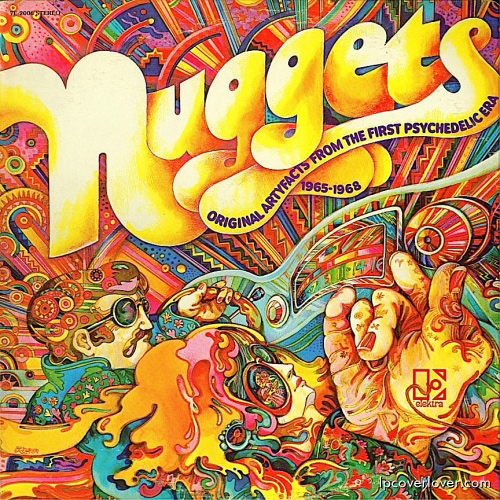‘I think it was the middle of 2000 when I was introduced to XTC via the band’s final swan song APPLE VENUS VOLUME 2 (WASP STAR). I remember being totally blown away by the band and eagerly devoured that album as well as the 1999 release APPLE VENUS VOLUME 1. I’ve always been a fan of lush, literate pop songs and that happens to be XTC’s specialty. I dove head first into XTC’s back catalogue and was surprised to learn that the band start out as a punk/New Wave outfit before slowly morphing into a Beatle-esque pop band. One of the reason the band never took off is because the band famously stopped touring due to lead singer/songwriter Andy Partridge’s stage fright. Partridge retreated from the spotlight after 2000 and the band only popped up on my radar occasionally when they released a smattering of demos and alternate takes of their previous output. The band remained a bit of a mystery to me, outside of their music for years, and other than one grizzled-looking CD Warehouse employee I never met anyone that seemed to be aware of them. I recently learned that Partridge has stepped back into the spotlight a bit via Twitter and writing for a few other artists (namely The Monkees whose new album I have previously reviewed).

Writer Todd Bernhardt has spent the past decade interviewing Partridge on many of XTC’s greatest songs. Apparently, these interviews were posted on a now-defunct fan website. His book Complicated Game: Inside the Songs of XTC collects and expands upon these interviews. This sort of book, a back and forth conversation between a writer/reporter and an artist, is probably my favorite type of long-form music writing. I love hearing an artist talk at length about their work. I eagerly dove into the book, ready to finally get insight into some of my all-time favorite pop songs. And to that end, Complicated Game succeeds in spades. My only issue with the book is that it dives very deep into the mechanics of these songs. If you’re a musician and a can follow Bernhardt and Partridge’s conversation about chord changes and keyboard filters, then this book will be a treasure trove of information. If, however, you aren’t a musician and are a bit of a dunce like me you’re going to be a bit lost in a good chunk of the book. There are great behind the scenes tales and for the most part, Partridge answers all of Bernhardt’s questions with honesty and aplomb (no dodging here).
The best chapters focused on the band’s most famous song and one of their more obscure songs. I found the chapter on “Dear God” to be highly illuminating. “Dear God” has fascinated me for many reasons and I was very interested in learning about the song’s development and the how and why it was initially left off of the band’s album SKYLARKING (and how it got added back once the song took off and became XTC’s biggest hit). The reasons behind its omission aren’t quite what I was expecting and its addition to the tightly structured concept album SKYLARKING is less problematic than I’d always considered. The chapter on one of XTC’s side project The Dukes of Stratosphere songs was also very intriguing. I’d always wanted to know how the psychedelic alter-ego band came about and how this project’s songs were crafted. Those two chapters made Complicated Game worth every penny for me. The insight provided into the band’s other songs were interesting as well, though there were a few songs not covered that I’d have liked to have read about. The book also spends quite a bit of time discussing Swindon, the English town where Partridge lives and wrote about extensively in many of XTC’s songs. I’d always pictured a Kinks-esque VILLAGE GREEN type hamlet but Complicated Game paints a more realistic version. I was a bit disappointed that the band’s bassist, Colin Moulding, didn’t get as many props from Partridge as I’d have thought. Sure, Andy was generous on more than a few occasions when discussing Moulding’s bass parts…but he didn’t gush the way I’d have thought. I know the two had a bit of a falling out, but this still struck me as odd. Perhaps I’m a bit too sensitive when it comes to Moulding, whom I have always felt was an overlooked genius.
I’d recommend this book to only the hardest of hardcore XTC/Andy Partridge fans. I think that if you’re a huge fan hungering for more information on the band and their creative process, you should check this book out right away. If you’re a casual fan or someone unwilling to sift through some serious technical music-talk, then you should proceed with caution. Andy Partridge is a humble genius and much of the discussion found in Complicated Game will go over your head (it went over mine). There are a few songs/chapters where Andy’s recollections are a bit on the sparse side, but even when the songwriter can’t recall every single detail he’s able to provide a lot of insightful analysis of the song. Lastly, I very much doubt that Mr. Partridge will happen upon this review, but if he does (or if Mr. Bernhardt sees this) I’d very much like to convey to him how happy I would be if he were put out brand-new music. Demos and fuzzy warbles are fun, but nothing beats fully-finished tunes. The song he penned for the latest Monkees album was a slice of brilliance the world needs more of these days.





